Asian American and Pacific Islander Heritage Month is observed in the United States during the month of May, and it recognizes the contributions and influence of Asian Americans and Pacific Islander Americans on the history, culture, and achievements of the United States. GagaTai would love to celebrate the special observation by having an Asian Americans and Pacific Islander American talk about their contributions to the LGBTQ community. Therefore, we interviewed the key queer leader Kipp Jarecke-Cheng, who was featured in 2022 Top 100 LGBTQ+ Executives, and he would share all the inspring life experience with us, including his coming-out story, advice for maintaining a relationship, keeping a lovely gay family, and his amazing accomplishments in LGBTQ fields and even more.

Hi Kipp! Please introduce yourself and share about your sexual orientation and ethnic id8Z=$rqFjU6SGW7b6KoQ-jtNSgCCl!4IEMa^lho%r5WXaP5P@Rdentity.
I’m Kipp Jarecke-Cheng, and I’m delighted to have the opportunity to chat with you and sha49XMQ#21@9+RkpM!%fqBE^qRr=v3NSoWTcBF6SppM004T@f&@Rre my story with GagaTai readers.
I currently serve as Chief Communications Officer at Publicis Health, the health and wellness vertical of Publicis Groupe. At Publicis Health, I oversee external public relations and communications as well as internal communications initiatives for the network. I was the founding co-lead for Pan-Asian Alliance, Publicis Groupe’s business resource group (BRG) for employees of Pan-Asian descent and our allies, and I’m a member of Publicis Parents, Publicis Groupe’s parents BRG, and Egalité, Publicis Groupe’s LGBTQ+ BRG.
I like to say that I am a diversity triple threat: I identify as a queer, immigrant, and person of color. Last year, I was named among PR Week’s Pride in PR Leaders and The Propel 100’s Most Influential Health Communications Professionals in the World. I was previously nominated for a GLAAD Media Award for Excellence in Journalism for a series I wrote for Diversity Inc. featuring transgender business leaders.
I’m proud to say I am M.I.T.: Made in Taiwan. I was born in Taipei and moved to America when I was three years old. I grew up primarily in Chicago and Hawaii. lv)2TXSK0&u1B76I+L-KLb(WNPMG0#$Lzu7ylpe_=5TJQF_q&yMy partner, Mark Jarecke, and I currently live in the New York metro area with our two children and our rescue dog.

Have you ever experienced discrimination due to your sexual or ethnic identity? Or have you heard of AAPI hate? How did you deal with it at the time?
Sadly, I’ve experienced plenty of discrimination throughout my lifetime. Like many LGBTQ+ people of color, I’ve faced my fair share of discrimination because of my sexual orientation and ethnic identity. While the racism and homophobia I’ve experienced in the workplace have tended to be less overt than what I’ve experienced in the wider world, I think discrimination in the workplace is more insidious because it can be subtle and more difficult to call out.
In addition to being a response to inBxjXD%Kzu6oo8#TDJc8#5$Gc^h=vZZls69SQ3FTQp5g8A&9B9tcreased AAPI hate, the primary reasons we launched the Pan-Asian Alliance at Publicis were to create community among our Pan-Asian colleagues and to educate our non-Asian colleagues and friends about our diverse Pan-Asian experiences.
Unlike other ethnic or cultural groups in America, there really isn’t a unified experience for Asians in America. In fact, what makes Asian Americans so special is how diverse our cultures and identities are. I firmly believe we are stronger together as a Pan-Alliance than we are as separated groups of Japanese, Chinese, Vietnamese, Korean, IndckhFS+-FiDzmeD2vIc99uJJ1+0NcPSY8w4p^qkAIIsTK(9g^VNian, Taiwanese, etc.
Despite the many differences among our ethnicities, I believe there are three experiences that are fundamental and shared by those of us from the Pan-Asian diaspora living in America: 1) Immigration is a key component of our shared American experiences; 2) As Asians, we can be in America for six hours or six generations, and many in the plurality of the white population would still perceive us as perpetual foreigners and outsiders; 3) Especially in corporate America, there is a misperception that Asian people do not possess "leadership" qualities like our white counterparts, resulting in many leaders of Asian descent hitting "the bamboo ceiling" in their careers.
It’s important to me to dispel the model minority myth that exists in America anyob$6i3P1NQMOcrM4WcnnX+lthqlX-C+@&-Mj-KY^!RH5Xk+R-d work to raise the visibility of all people from across the Pan-Asian diaspora.
During the COVID-19 global pandemic, a lot of Asian people in America experienced increased hatred and violence directed at us. This was exacerbated by a toxic political eEKBVO4K64tG2gDS2v!$WamwRTuNBYmH$-Uuro#vZhlnDeJbUPsnvironment that fueled negative stereotypes about and mistrust of Asians in general.
I think it was important for the Asian American community to stand in solidarity with the Black Lives Matter movement, and during the rise of AAPI hate, our allies within BLM and other historically marginalized groups stepped up to show theirv46gcE@+34^9hcU4p-%sh1di0BIEuuSPuk)sD1m*2GQU6y-(4V support when we needed it as well.
Tell us about your coming-out story. Wh4NtCZHrg_xWd*NUAkzmIwXd277HsaB&Jr=9SqAAodZ8YzMP5V5at advice would you give to someone who wants to come out??
My coming-out story is pretty boring. I came out to my family in college with little fanfare or drama. Although my parents were old-fashioned in some ways, they were remarkably progressive whhm@8S$e$QLVjWX*F2mqGFYLg32g^4d4i!4h-aDjLi%M1FBHGe&en it came to the life choices that their children made. I had the good fortune of having supportive parents and a family that embraced the differences among all of my siblings and me.
The coming-out process is different for everyone. My main piece of advice is to come out on yo!$RRBAVzZDX6)b#u&zP9$hNFWXNB&$kuFbAH6#vEk3pg@3$v&our own terms and on your own time. For some, coming out is a long, complex process. For others, it’s fast and no big deal. Everyone’s coming-out story is unique.

We would love to know your sweet love story! How did you meet your true love? Could you share some tips about maintaining a relationship with your partner?
I was set up on a blind date with my partner, Mark, when I was in graduate school at Columbia University. We were both pursuing caree2_k5dZ0Cry76nfU2N=gF%6R$%6sWuVKJ@U1@loRxNDlmJBUV1Prs as artists at the time, and we bonded over our shared artistic interests and the fact that we both came from large families. On one of our first dates, we talked about how important it was to each of us to have a family of our own one day.
I like to joke that Mark OPubwVVR32B=qB@5U+o1eQ-=qy-5pTXkjeQpefBRST4=30zyypand I went on a blind date in grad school, we had a few drinks, and then, 12-and-a-half years later, we accidentally adopted our first kid. We recently passed the milestone of being together for 25 years.
I think the key to our relationship is maintaining humor and curiosionRl_MhLPfd#!VhLQzFtkGH7K$f6o%ck*JZOgO2ngEJmMjdAh+ty. Mark has always been able to make me laugh and think. During COVID lockdown, when we were together 24/7 for many, many weeks and months, I realized how well matched we are as a couple. There’s no one I would want to be in isolation with besides Mark. And my kids, of course!

Parenting is always an important issue. What is the core idea of the education that you and your husband have been giving your children? Also, we need some heartwarming interaction between you and your children!
I’ve always known that IVPZolY9^mhSNzNHu+lsh&Y=DO7feY*q8KhH=i%1n&iNLQEDy0u wanted to be a dad, but I didn’t know how I would accomplish that goal. Mark and I balance each other out in many ways. He’s strict about things that I’m not strict about, and vice versa. We share a united front with our kids, even if we don’t always agree on the details.
Our son is now a teenager, while our daughter is still in elementary school, so they are at very different stages in their lives. The house rules that we’ve impressed upon our children since they were born are: 1) be kind and generous; 2) don’t lie, cheat, or steal; and 3) always try to leave things better than when you arrived.
I think children who are raised by two dads (or two moms) are naturally inclined toward being more open-minded, simply by virtue of the fact that our family is different from most families that surround us.
A funny story about our daughter: we adopted her when she was two days old, and we’ve maintained an open relationship with her birth family from the start. One day, when our daughter was around six years old, we were talking about her adoption story, and she said, "Wait, I’m adopted ???" Even though she knows her birth mother, our daughter didn’t quite understand or realize that she was adopted. It’s a funny, silly story that we remind her of from time to time. I’m not sure how she thought a Taiwanese dad and a Polish dad could make an Afro-Cuban daughter!

As a key leader, how do you plan to improve LGBTQ+ rights at the workplace and even in life?
More than anything, representation matters. Growing up, I didn’t see many LGBTQ role models in life or at work. I think it’s critical that LGBTQ leaders are open and visible so the next generation of LGBTQ leaders sees that tct8(ZbNBd+n33OrftM9pOXG$wqJpo(Sq&bVrrJs-B#zL8V*k&chere are opportunities to succeed despite a person’s sexual orientation or gender identity.
In addition to contributing to the business resource groups at work, I’m proud to be named among this year’s Involve and YouTube's Top 100 List of Outstanding LGBTQ Role Models.
I’ve shared intersectional LGBTQ+ stories across Publicis through a variety of programs, including interviews and fireside chats with drag superstar Peppermint, trans dad Aydian Dowling, novelist Darnell L. Moore, and New York Times food writer Eric Kim.
For many years, I wrote a popular Tumblr blog about being a gay dad, and as a result, I was invited by then-Vice President Joe Biden to speak about queer fatherhood at the White House. My family has been featured in campaigns for the Human Rights Campaign supporting paid family leave and Dove Men+Care.
Improving the lives of LGBTQ people means ensuring that our rights are supported and championed by our allies and by ourselves.













